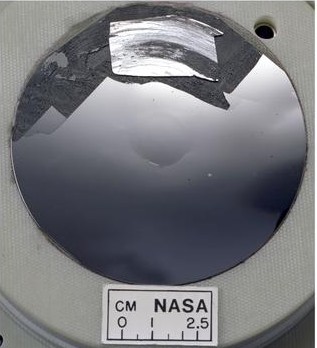Silicon
 |
| Name |
Silicon |
| Symbol |
Si |
| Atomic Number |
14 |
| Atomic Mass |
28.086 atomic mass units |
| Number of Protons |
14 |
| Number of Neutrons |
14 |
| Number of Electrons |
14 |
| Melting Point |
1410.0° C |
| Boiling Point |
2355.0° C |
| Density |
2.329 grams per cubic centimeter |
| Normal Phase |
Solid |
| Family |
Metalloids |
| Period |
3 |
| Cost |
$50 per pound |
| Origin of Name |
From the Latin silicus, meaning flint |
| Date and Place of Discovery |
In 1824 in Stockholm, Sweden |
| Discovered by |
Jons
Jakob Berzelius |
| Common Compounds |
|
| Interesting facts |
- It is the second most abundant element in the earth's crust at 25.7%.
- It is found in the sun and stars.
- It is found in meteorites known as aerolites.\
- It is not found free in nature.
- It is found in oxide and silicates (sand, quartz, amethyst, agate, flint, jasper, opal,
and citrine).
- Its minerals can be found in granite, hornblende, feldspar, mica, clay, and asbestos.
|
| Common Uses |
- Transistors
- Solar cells
- Electronic solid-state devices
- Glass
- Mechanical, optical, thermal and electrical devices
- Computer chips
- Lubricants
- Concrete
- Bricks
- Silicone implants
|
|